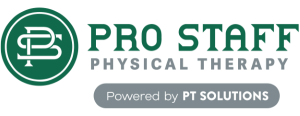#NewYearNewMe

Roaring in the ‘20s with a new regime? We thought so. Losing weight, changing your diet, and exercising remain the top New Year’s Resolution across age groups, per YouGov. Which might sound like great news, but statistically, an overwhelming majority of resolutions fizzle out by the second weekend in January.
How can you get your New Year’s Resolution to stick, then? Check out these helpful tips for ideas.
One Resolution
Thinking about more than one resolution? Maybe you want to eat better and exercise more. That’s great! But maybe stick to one for a bit. The American Psychological Association has confirmed that changes to one’s routine require time and effort to incorporate. Even small changes, such as waking up a few minutes earlier, can take weeks to adopt.
Committing to more than one resolution can quickly turn into a daunting trial that could become more stressful than the change is worth. We suggest picking one resolution that you can focus your attention on and build off of it. There is always next year’s resolution, after all!
Make it Attainable
Now that you’ve committed to one resolution, don’t force yourself into a box with it. Setting large goals with no plan to achieve them – especially when it comes to exercise – can not only lead to stress and disappointment, but also injury.
Set small, attainable goals that you can check off daily or weekly. If you’re exercising for the first time, learn about the importance of stretching and warm-ups and build from there. Set a schedule that includes goals and even rewards for achievement.
Talk about it
Let friends or family know about your new year’s resolution! Having a support system around you can increase the likelihood these changes will stick. If possible, bring friends in on your resolution. Doing so can create a friendly challenge that pushes you to try harder.
Go Easy on Yourself
Slip-ups happen. On average, a person can experience as many as 14 slip ups over the course of adopting a new routine. Give yourself a break when it happens – after all, the only person who knows about it will be you. Remember, positive reinforcement can be more effective in coaching yourself than negative reinforcement!
Log
As mentioned earlier, tracking your progress through a journal, log, photos, or calendar is a great way of easily showing how far you’ve come from day one! It also helps with positive reinforcement, keeps your routine on track, and can even keep you excited to continue. Plus, starting a resolution at the beginning of the year makes calendar tracking super easy.
Takeaway
We’re just as excited to start the new year as you are! Our resolutions at ProStaff are your resolutions – living a better, healthier, stronger life. And, where you might need help, we are here to help you achieve those goals as experts in physical therapy, occupational therapy, and recovery.
For more information about ProStaff and how we can help, make an appointment with one of our experienced physical therapists at a location near you.
Pro Staff Institute, LLC, has a network of outpatient physical rehabilitation centers in New Jersey. Pro Staff was founded in 2010 by Frank Pavlisko and Michael Maffucci. Through Frank’s 25 plus years experience in Physical Therapy and Michael’s experience in Management Services, our goal is to exceed customer expectations by providing the highest quality of service in a fun, family, friendly, and encouraging environment.
PRO STAFF LOCATIONS
OFFERING CERTIFIED
HAND THERAPY
Managing Diabetes: The Role of Physical Therapy
Managing Diabetes: The Role of Physical Therapy As of 2024, approximately 38.4 million Americans, or 11.6% of the U.S. population, have diabetes. Of these, 29.7 million cases are diagnosed, while an estimated 8.7 [...]
Staying Active and Injury-Free During Summer Activities
Staying Active and Injury-Free During Summer Activities Summer is a fantastic time to engage in outdoor sports and physical activities. Whether playing soccer, tennis, cycling, or jogging in the park, staying active is [...]
The Importance of Posture: How Proper Alignment Can Prevent Pain and Injury
The Importance of Posture: How Proper Alignment Can Prevent Pain and Injury In today's fast-paced world, where many hours are spent over desks, smartphones, and computers, posture is often neglected. Poor posture can [...]




